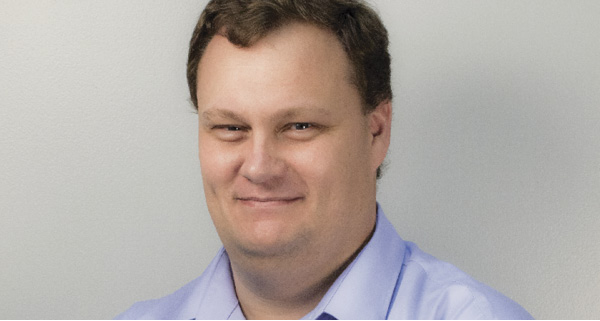Chris Carlson: All Charged Up

Chris Carlson is vice president of Batteries Plus Bulbs, a retailer of batteries and light bulbs based in Hartland, Wis., with more than 570 corporate and franchise locations in the United States and Puerto Rico. He has held this position since 2011.
Responsibilities: Transportation, warehousing, vendor management, demand planning, part of the China supply chain, customer support center, store support center.
Experience: Industrial engineer, corporate logistics manager, Archway Marketing Services; independent consultant to Echo Global Logistics; director, global logistics and customs compliance, Wilsons Leather; senior director, supply chain and logistics, Christopher & Banks.
Education: B.S., mechanical engineering, Marquette University, 1994.
I earned My degree in mechanical engineering, and Archway Marketing Services hired me in 1997 to help automate their warehouse operations. Once that project ended, however, my team’s role kept expanding. We helped make the warehouse labor force more productive, and cut freight costs.
Soon logistics was part of my job description, and I’ve been working in this field ever since. Our logistics operation at Batteries Plus Bulbs serves both corporate-owned and franchise retail outlets.
Many of our end customers are consumers, but about 30 percent of our business involves selling to hospitals, prisons, schools, and other commercial customers. In summer 2013, we shipped many batteries to the National Forest Service for use by the firefighters battling wildfires in California and Colorado.
Batteries Plus Bulbs sells under its own name and licenses other brands. Of the product sold in stores, about 80 percent flows through our warehouse in Glendale, Wis. That includes the 60 percent of product we import from Asia—mainly China—plus about half the product we purchase from domestic suppliers. The rest of the product from domestic sources moves directly from the vendors to our stores.
Over the past few years, demand for cell phone batteries has grown by 40 to 50 percent. Some people buy replacement batteries as soon as they buy their phones. They drain the first battery in the morning, then pop in the second one to use for the rest of the day while recharging the first.
It’s not easy to predict which new phones will take off and drive demand for particular batteries. To stay fast and responsive, we often ship via air. That creates its own set of concerns, because the lithium ion batteries used in cell phones are subject to special airfreight regulations. We have to stay current on those rules as they evolve.
Another challenge is making sure vendors can keep up with our growth as more people come to depend on electronic devices. The average home contains 28 battery-powered devices and 61 light bulbs. In 2010, 26.4 million laptops were sold, according to technology and market research company Forrester Research, and 38.9 million are expected to sell in 2015.
Our supply chain operation will soon become even more complex, as Batteries Plus Bulbs launches a mobile device repair service. We’ll need to understand which screens customers need, identify new vendors, and develop new packaging.
When I started at Batteries Plus Bulbs, we were making a transition from a third-party warehouse to our own facility. Our demand planning team had lost half its members, and China was shutting down one-third to one-half of its lead acid battery factories in favor of plants with greener operations.
In the face of all that, I’m proud that we’ve managed to build our team quickly, so we never have to say no when new projects come up. Our key to success has been putting the right team members in place, and making sure they have the necessary training and tools. It’s a lot of work, but once you have the right team, you can tackle almost anything.
The Big Questions
What movie could you watch one million times without getting tired of it?
The Blues Brothers.
If you could take back one sentence you’ve ever spoken, what would it be?
"No, we’re not doing that." Even if the final answer is "No," you should always explain why.
If you received a surprise package today, what would you like to find inside?
A crystal ball to tell me what projects I need to work on next.
Do you have a talent outside work?
Sailing. I was voted Crew of the Year at a yacht club I belonged to when I lived in Minnesota, and I taught sailing in college.
